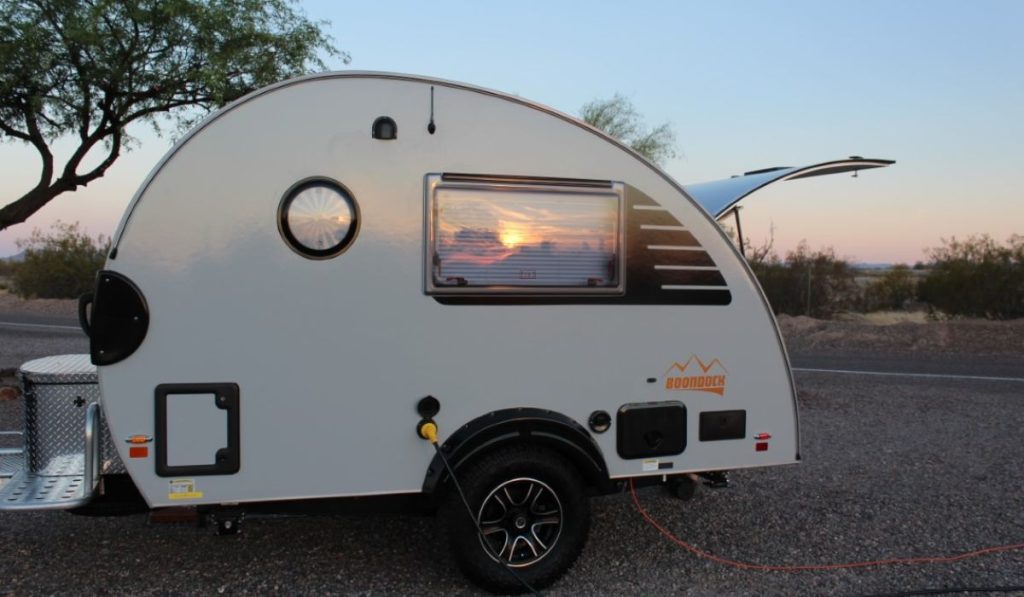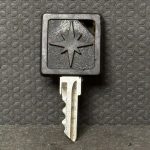For many, camping evokes images of expansive RVs and trailers. However, a new wave of adventurers is embracing the joys of small campers. These tiny homes on wheels offer a unique blend of adventure, affordability, and maneuverability, making them perfect for exploring the outdoors without sacrificing comfort. This guide delves into the world of small campers, equipping you with the knowledge to choose the right one, outfit it for success, and embark on unforgettable camping experiences.
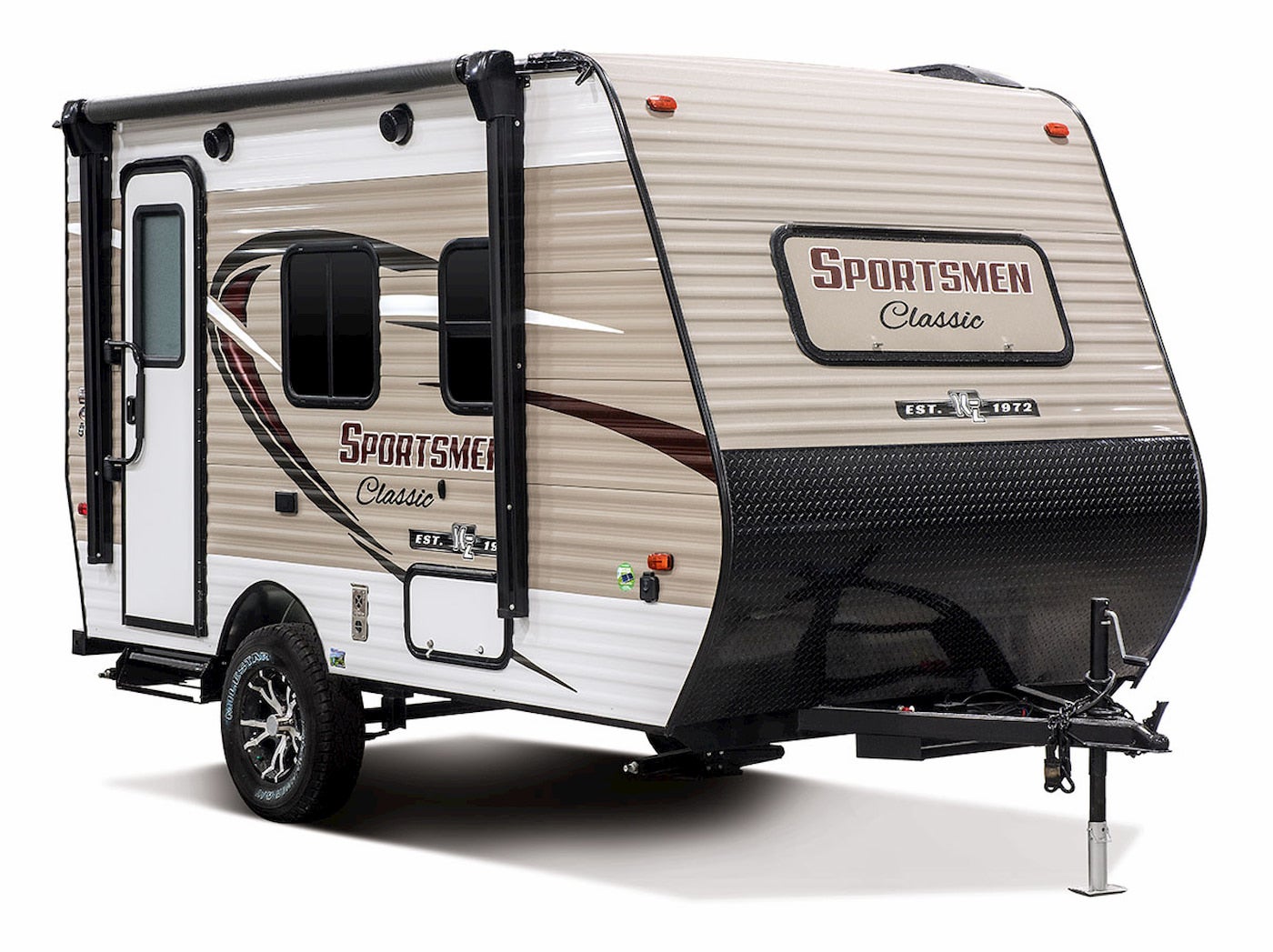
Understanding the Types of Small Campers: Variety for Every Need
The beauty of small campers lies in their diversity. Here’s a breakdown of some popular types:
-
Pop-Up Campers: These lightweight trailers collapse for easy towing and expand to reveal a tent-like cabin with sleeping space, a dining area, and sometimes even a kitchenette. They’re ideal for budget-conscious campers who value portability.
-
Teardrop Trailers: Shaped like a teardrop, these compact trailers offer a streamlined sleeping area and basic storage. Many have galley kitchens attached to the back, perfect for whipping up camp meals. Ideal for couples who prioritize scenic views over extensive living space.
-
Truck Campers: Designed to fit snugly in the bed of a pickup truck, these campers provide a comfortable sleeping area, storage compartments, and sometimes even a kitchenette and bathroom. They offer excellent off-road capability and allow you to detach the camper from the truck for exploring on foot.
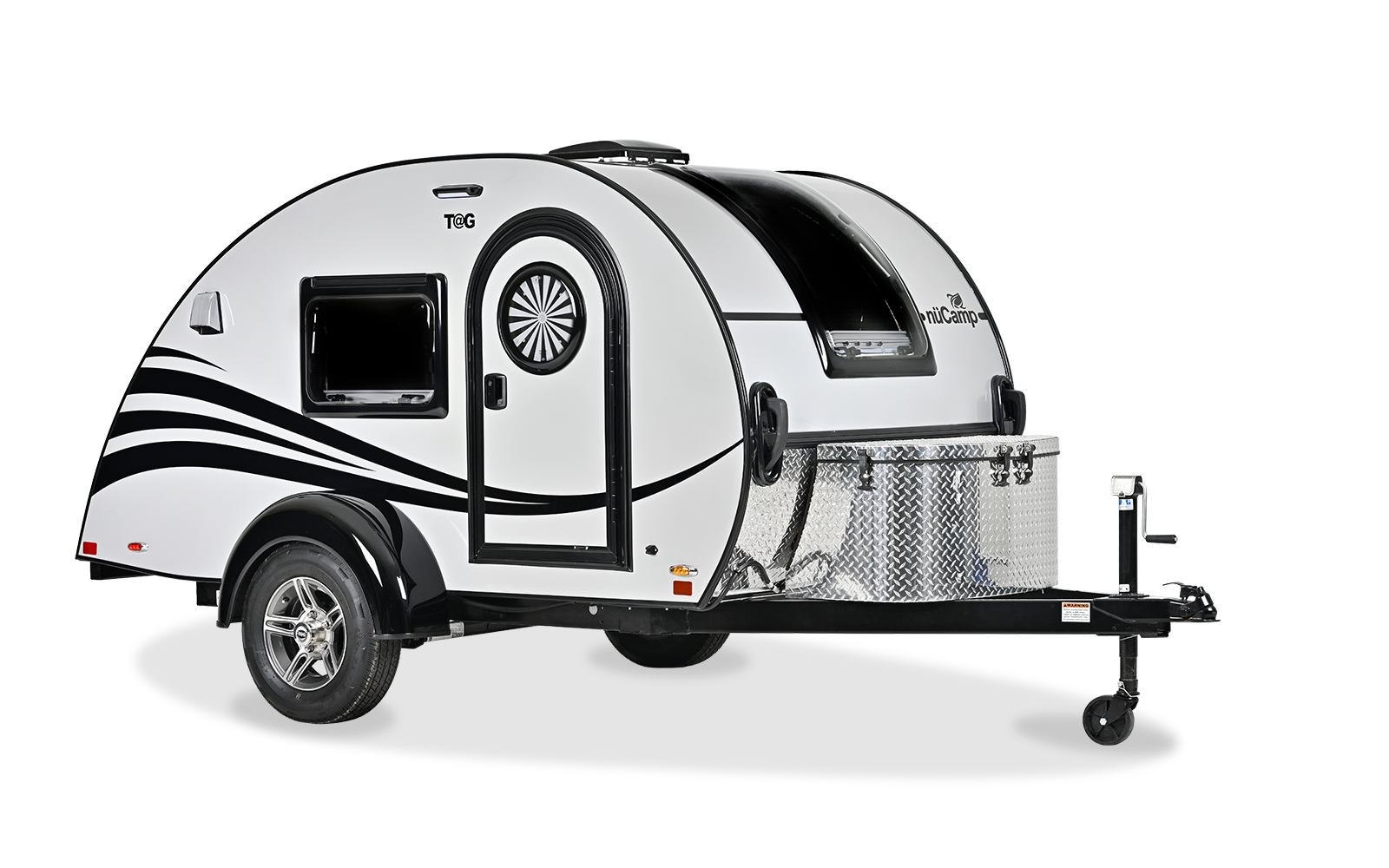
Selecting the Right Small Camper: Matching Your Needs and Budget
Choosing the perfect small camper requires careful consideration. Here are some key factors to ponder:
- Size and Sleeping Capacity: Consider who will be camping with you. Do you need a cozy space for two, or a larger camper for a family?
- Style and Amenities: Prioritize features that are important to you. Do you need a dedicated cooking area, or are you comfortable with a camp stove?
- Budget: Small campers offer a range of price points. Determine your budget and stick to it while considering the long-term value and durability of the camper.
Essential Gear and Accessories for Small Camper Adventures
To maximize your small camper experience, you’ll need some essential gear:
- Sleeping: Compact sleeping bags, pillows, and lightweight bedding are crucial for a comfortable night’s rest.
- Cooking: A camp stove, cookware, utensils, and a cooler ensure you can prepare meals on the go.
- Lighting: Lanterns, headlamps, and flashlights provide illumination after dark.
- Storage: Utilize space-saving storage solutions like bins, hanging organizers, and roof racks to keep your camper clutter-free.
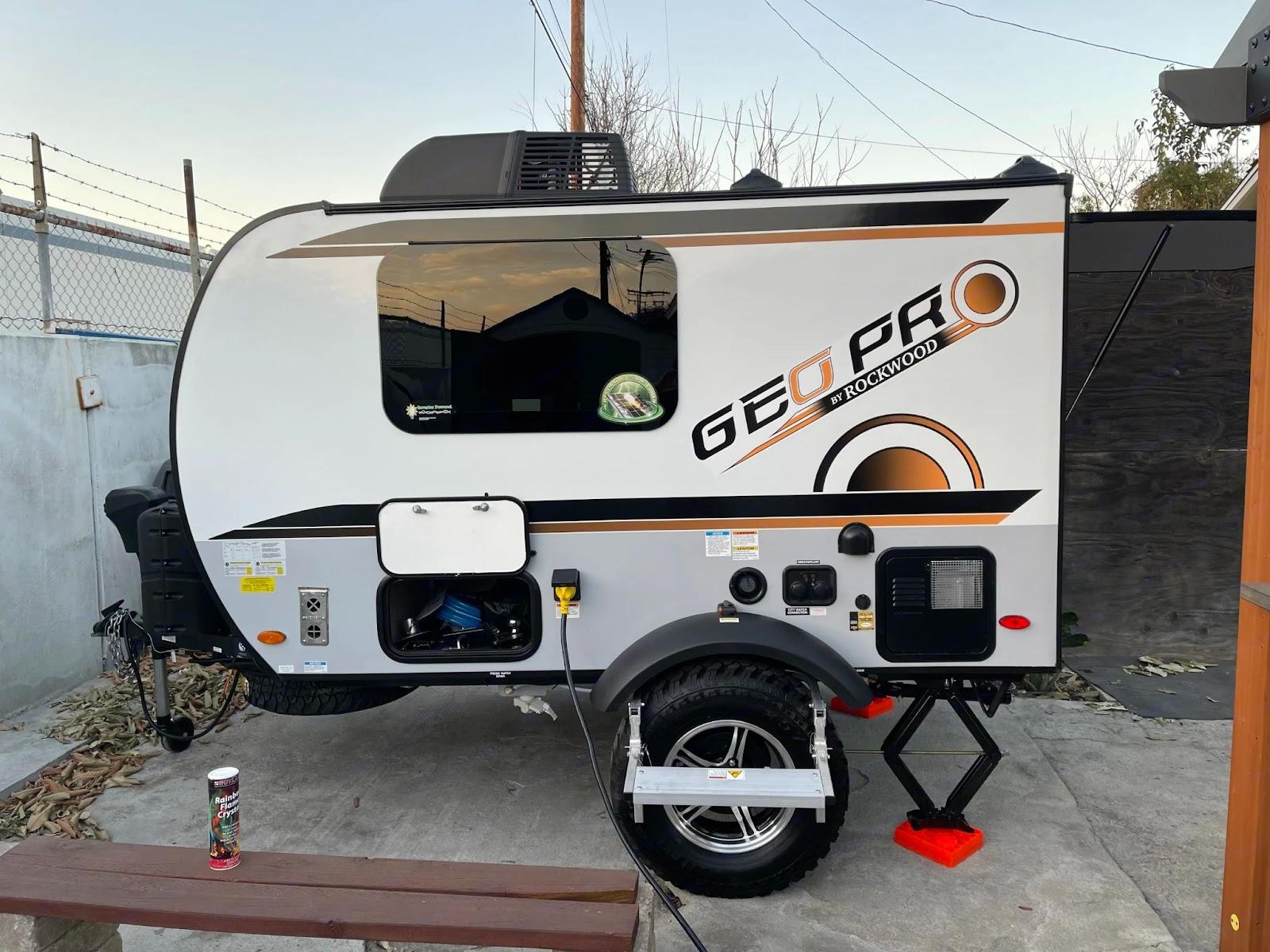
Camping with a Small Camper: Tips and Techniques for a Smooth Experience
Living comfortably in a small space requires some clever tricks:
- Setting Up: Leveling jacks and stabilizer bars ensure a stable camping experience. Learn how to extend slides (if applicable) and connect utilities like water and electricity.
- Maximizing Space: Utilize furniture that folds or converts, hang storage bags on walls, and store bulky items outside in weatherproof containers.
- Conserving Resources: Small campers have limited water and power capacity. Take shorter showers, use LED lights, and consider solar panels for generating electricity.
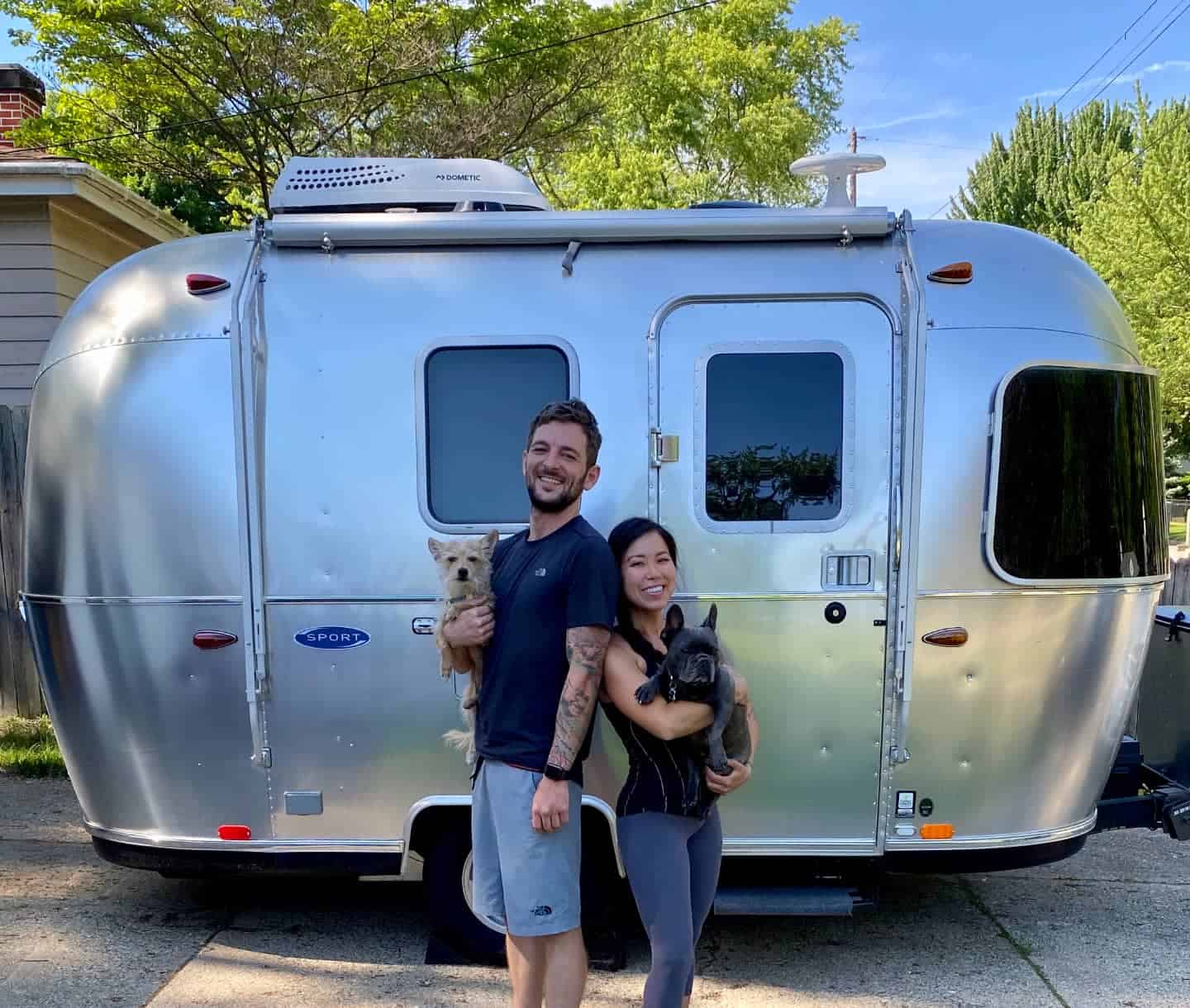
Unique Challenges and Considerations for Small Camper Camping
Be prepared for some challenges inherent to small camper living:
- Limited Storage: Plan your packing carefully, prioritizing essentials and using multi-functional items.
- Water Capacity: Conserve water by using biodegradable wipes for cleaning and taking short showers. Consider refillable water containers.
- Power Availability: Solar panels can help offset your reliance on campground electricity. Portable power banks can also be helpful.
Small Camper Maintenance: Keeping Your Tiny Home on the Road
Regular maintenance is key to a long and happy life for your small camper:
- Preventative Maintenance: Perform regular checks on tire pressure, fluid levels, and seals. Inspect the roof for leaks and the appliances for proper function.
- Rust Prevention: Especially important in humid environments, regularly wash and wax your camper to prevent rust and corrosion.
- Winterizing and Storage: If storing your camper in the winter, take steps to prevent freeze damage by draining water lines and antifreezing the engine block.
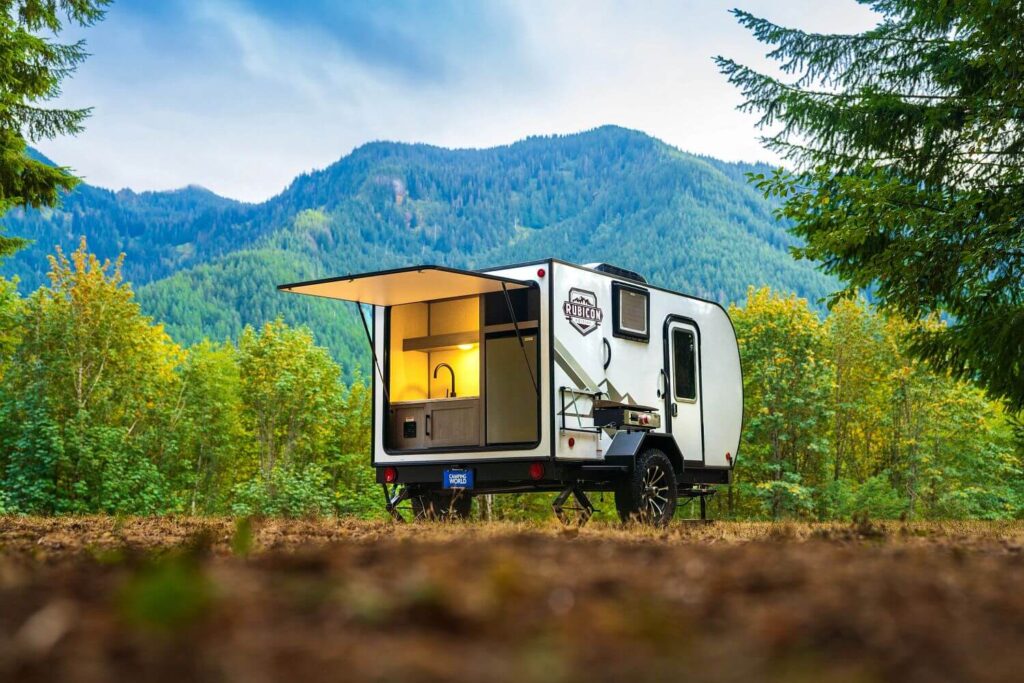
-
Small Camper Communities: Finding Support and Camaraderie
The small camper community is a vibrant and welcoming one. Here’s how to tap into it:
- Online Forums and Social Media Groups: Connect with other small camper enthusiasts through online forums and social media groups dedicated to this niche. Share experiences, ask questions, and get valuable tips from seasoned campers.
- Local Camping Clubs: Many regions have local camping clubs that often welcome small camper owners. These clubs organize camping trips, skills workshops, and potlucks, fostering a sense of community and shared passion for the outdoors.
Environmental Responsibility: Minimizing Your Impact While Camping
Small campers can be a force for good! Here’s how to camp responsibly:
- Leave No Trace Principles: Respect the environment by adhering to Leave No Trace principles. Properly dispose of waste, minimize campfire impact, and avoid disturbing wildlife habitats.
- Water Conservation: Use biodegradable dish soap, take short showers, and consider using a greywater system to capture used shower water for non-potable purposes.
- Eco-Friendly Practices: Opt for solar power where possible, use reusable dishware and water bottles, and avoid single-use plastics. By making these choices, you can minimize your environmental footprint.
Small Camper Destinations: Exploring Hidden Gems and Classic Campgrounds
The beauty of small campers is their ability to access diverse locations:
- National Parks: Many national parks offer campgrounds with designated sites for small campers, allowing you to explore breathtaking scenery in comfort.
- Dispersed Camping: Public lands often allow dispersed camping, where you can find secluded campsites off the beaten path, perfect for a truly immersive experience.
- State Parks and Forests: State parks and forests frequently have campgrounds well-suited for small campers, offering a variety of amenities and access to hiking trails, lakes, and other natural wonders.
The Joy of Small Camper Camping
Small camper camping offers a unique way to experience the outdoors. It’s a perfect blend of adventure, affordability, and a connection with nature. By choosing the right camper, packing cleverly, and adopting responsible practices, you can embark on unforgettable camping trips that create lasting memories. So, ditch the bulky RV, embrace the freedom of a small camper, and hit the road to explore the world in a compact, comfortable, and eco-friendly way. The great outdoors await – let your tiny home on wheels be your gateway to adventure!
